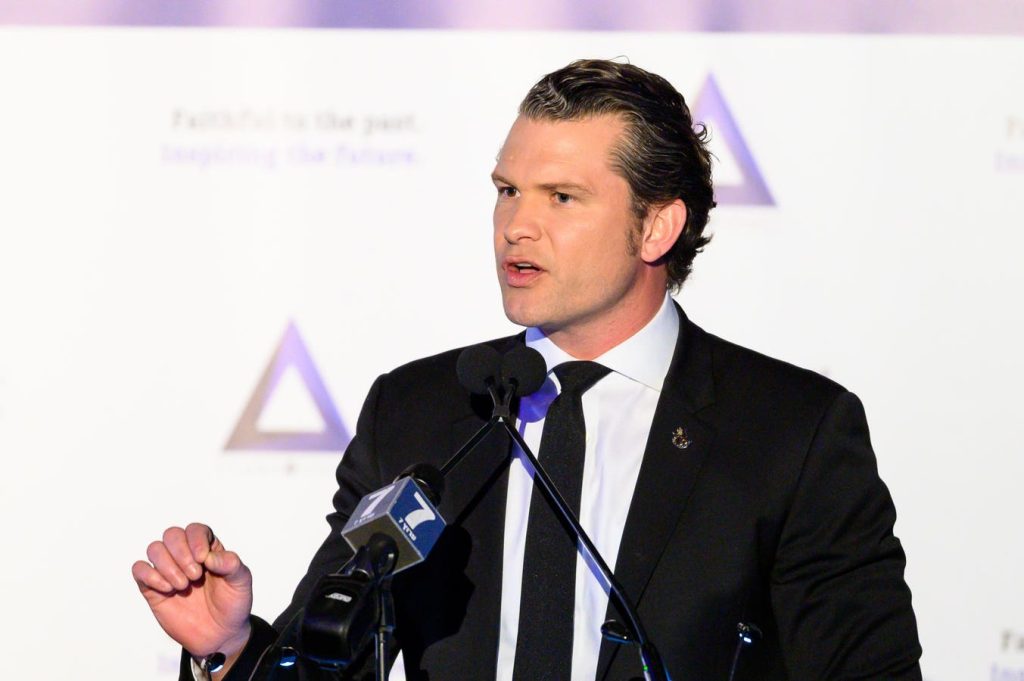The nomination of Pete Hegseth as Defense Secretary under President-elect Donald Trump has been marred by serious allegations, including a sexual assault claim and accusations regarding his drinking habits. During an interview on “The Megyn Kelly Show,” Hegseth described the allegations as a “ridiculous narrative” and explicitly stated that he does not have a drinking problem. He emphasized that should he be confirmed, he would abstain from alcohol, considering it crucial for his role in the military. Despite his firm denials, the ongoing scrutiny of these allegations raises questions about his integrity and fitness for the position, putting him in a situation reminiscent of Supreme Court Justice Brett Kavanaugh’s contentious confirmation process.
The timeline of events surrounding Hegseth’s nomination provides a comprehensive look at the allegations and the reactions they have provoked. Since the initial claim of sexual assault from 2017 came to light, various Republican senators, including Cynthia Lummis and Lindsey Graham, expressed concerns over the legitimacy of the allegations, suggesting they could inhibit Hegseth’s ability to secure confirmation. Additionally, there have been reports of prior heavy drinking incidents during his time at Fox News and as president of Concerned Veterans for America, raising red flags among supporters and critics alike. Hegseth’s past conduct includes troubling incidents reported in a whistleblower report, which highlight a pattern of inappropriate behavior that could lend credence to the allegations against him.
Support for Hegseth within Republican circles appears divided. While some senators support him and express confidence in his capabilities, others voice reservations about the allegations and their potential implications for military leadership. These mixed reactions underscore the broader challenges Hegseth faces in garnering the necessary support to move forward with his nomination. The evolving narrative points to essential discussions within the party concerning the treatment of sexual assault claims in a time when the military grapples with its own issues related to such allegations.
The allegations against Hegseth include a police report detailing an encounter in a Monterey, California hotel, during which the accuser asserts she repeatedly said “no” in response to his advances. Hegseth has maintained that the encounter was consensual, casting doubt on the credibility of the claims. This narrative is complicated by the existence of a settlement agreement reached between Hegseth and the woman involved, which has raised further questions about the motivations behind the allegations and the integrity of Hegseth’s response to them.
In addition to sexual assault allegations, there are serious concerns regarding Hegseth’s drinking habits, with former colleagues from Fox News alleging that he was frequently intoxicated at work. Reports of incidents from his presidency at Concerned Veterans for America, including an event where he allegedly made offensive remarks while under the influence, contribute to a damaging portrayal of his character. Such accusations, if proven true, could undermine Hegseth’s ability to effectively lead as Defense Secretary, further jeopardizing his nomination and setting a challenging precedent in the context of military leadership.
As the Senate gears up to consider Hegseth’s nomination, the broader implications for military culture, leadership accountability, and responses to allegations of misconduct will be scrutinized closely. Given that only three Republican dissenters can derail his confirmation in a narrowly divided Senate, it remains to be seen how these allegations will impact the voting dynamics and what they might reveal about the Republican Party’s stance on issues of sexual misconduct and leadership integrity. The outcome of this nomination will likely resonate beyond Hegseth’s individual case, highlighting critical discussions about ethics and accountability in governance moving forward.

